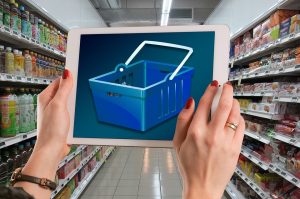B2C and B2B are two business marketing models that describe the type of recipient of goods or services. However, the two business models vary. The B2B refers to an acronym for Business to Business. In particular, it is a commercial transaction where selling and purchasing of products are done between two businesses. On the other hand, B2C is an acronym for Business to Consumer where a business sells its good directly to final consumers. Below we analyze some of the critical differences between B2B vs B2C logistics.
B2B vs B2C Logistics
The setting of the pricing for B2B is based on the end business’s needs and requirements. In this case, the pricing depends on the payment terms, duration of the contract, size of orders, and recurring orders. On contrary, B2C orders are easier and do not have any complexities like B2B orders. The production company pre-sets the pricing for the orders and it is rare to find a price variation.
When it comes to B2B there is an account manager or sales coordinator who helps to facilitate the exchange of goods for order fulfillment. On contrary, B2C transactions do not require additional sales help because end customers place their orders directly through a company’s website. Not only that, the selling process under B2B transactions needs more time than B2C orders because they need negotiation, request quotes, and department approval. On the other hand, customers can place their orders immediately or shop around by looking at various websites, making B2C order fulfillment take less time.
Order Size
The B2B shipments involve a large volume of products that are sold directly to retailers. Therefore, retailers will place an order when they want to restock their inventory center. On contrary, the B2C purchases are single purchases that come in smaller volumes and can be completed through a single transaction. The payments for B2B are made within the contracted period using traditional methods such as purchase order method, credit, and cash on delivery. When it comes to B2C, payments are made immediately using checks, cash, credit, and debit cards. Since the B2B orders come in large volumes, their shipments take longer, need sophisticated handling equipment, more money to complete, and need professional loading and unloading personnel. On the contrary, B2C orders are typically low-cost and lightweight packages that sometimes have free shipping. In this case, an order might be shipped within a few days.
Returns
Every business is expected to have an appropriate system for managing returns even when they are dealing with B2B or B2C logistics. The B2B returns and refunds are complicated. In this case, the reverse logistics process becomes complicated because it contains a large order size and volume of products. There is also a contract they are attached to and other obligations which should be negotiated. On contrary, the B2C return process is very simple and easier. In most cases, the B2C orders contain direct return policies with a full refund if the consumers are not satisfied with the goods. However, the goods should have all tags intact and not have any damages for the customer to receive a full refund.
Customer Relations
In most cases, B2B contracts come with personal partnerships, recurring shipments, and large volumes. In particular, the contracts involve negotiation for a long period and need constant follow-up and monitoring. However, the relationships in B2B should not be confused with the customer satisfaction needed in B2C logistics. B2C customer satisfaction includes a display of accurate products, on-time delivery, good customer service, and marketing.
The two business models are very critical because they can cover the complete business process. The B2C can suit entities that are engaged in the sale of their goods to final consumers while B2B is meant for entities that sell their goods to other businesses by adding value. However, it can be challenging to identify the differences between these two types of logistics practices. Since we have identified the critical differentiators, you have the required information that you can use to make an appropriate choice for your business.
Christopher Morgan Fulfillment Center Services
Christopher Morgan Fulfillment has access to more than 600,000 square feet of professionally managed, secure, dry storage space, warehousing & distribution in Milwaukee and in all regions of the United States.
Our facilities are located in:
- New Berlin, Wisconsin
- Milwaukee, Wisconsin
- Atlanta, Georgia
- Los Angeles, California
- East Brunswick, New Jersey
 Direct To Customer
Direct To Customer
- Direct Response
- E-commerce Fulfilment
- Catalog/Print Advertising
- Continuity/Membership/Awards
- Customer Contact Center
 Retail Distribution
Retail Distribution
- Big Box Retail Distribution
- Home Shopping
- Electronic Data Interchange (EDI)
- Experts at Retail Compliance
- Partner Testimonials
BUSINESS TO BUSINESS
- Warehousing & Distribution
- Lot Control
- Kitting/Light Assembly
- Inspection Services
- Repackaging & Rework Services

